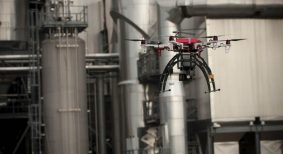Risk Management
Building sector brainstorms on extreme weather
Commercial real estate operators have a steadily accumulating inventory of lessons learned from extreme weather events, providing both motivation and insight to prepare for more climate volatility in the future.
Pension funds drawn to investable cities
Despite an abundance of investment funds spending across the globe, Canadian infrastructure continues to face a crisis.
FireSmart land use planning supports safety
Prolonged, mass evacuations and the spectre of approaching flames reinforce the importance of emergency preparedness and embedding risk management in land use planning.
Resilient energy plans for severe weather risks
The Resilient Pipes and Wires Report argues that investment in climate change adaptation is imperative for safety, security and business continuity, and to avoid the staggering losses that can result from lack of preparedness.
SaskPower inspires recall of smart meters
SaskPower's experience sparks recall of smart meters in Ontario.
Resilient buildings function through crises
Resilient buildings respond to the growing likelihood of extreme weather events.
Road salt usage causing problems in Ontario
Property managers are using large amounts of road salt this winter. But overuse is taking its toll on their' pocketbooks and the environment.
Recognizing safety threats in the janitor’s closet
Cleaning chemicals rely on powerful formulas to help loosen and remove soils and contaminants from all types of surfaces. When used properly, they are generally safe. When used improperly, problems can arise.
Reducing the risk of Legionella
Any water source in a building that can be aerosolized may be a Legionella risk, particularly where the water is dirty, remains still or is not exposed to a ...
Caution afoot
Engineering and life safety specialists are currently examining stairwell concerns in preparation for possible new or revised rules that would be introduced in the 2015 National Building Code.
Flooding brings immediate, downstream costs
Water spills, leaks and floods are a common occurrence that can have a costly impact on public and workplace safety and building operations.
Legislation gets to the heart of health and safety
Manitoba is the first Canadian province to mandate automated external defibrillators (AEDs) in specific facilities.








